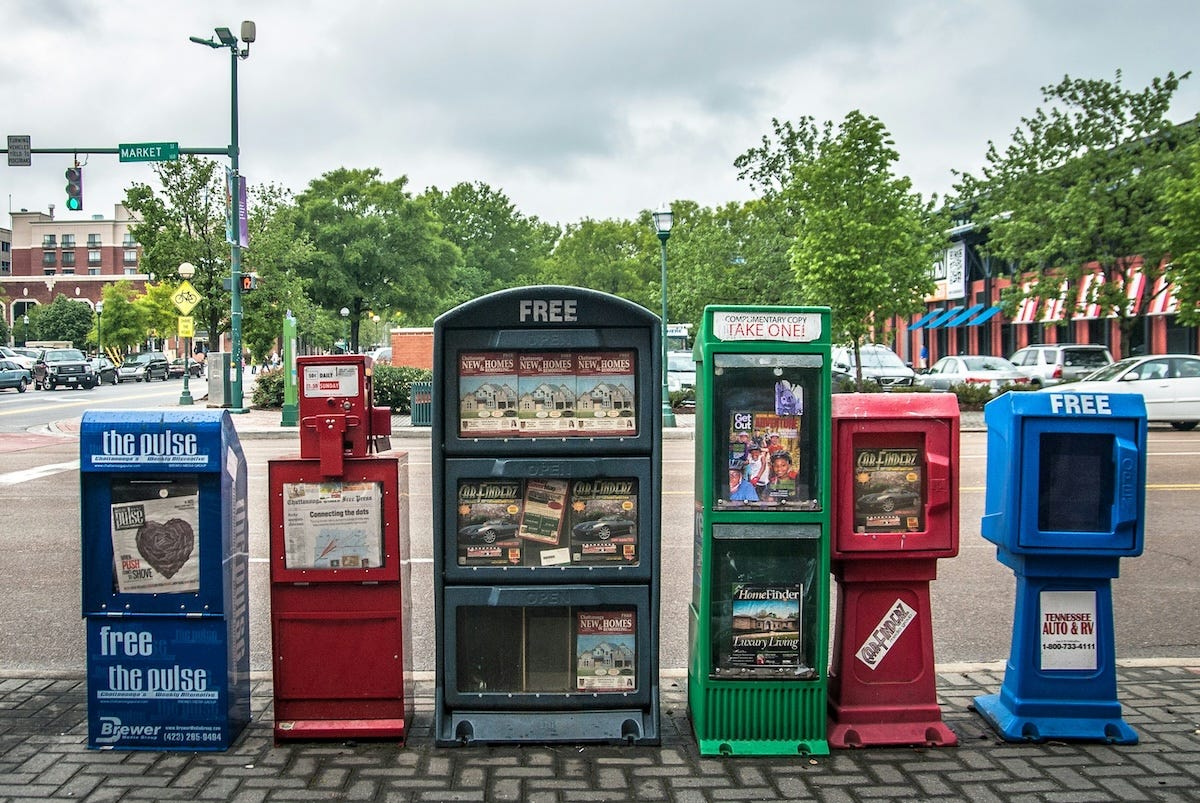Suddenly the noise became too much
In praise of the unsubscribe, the unfollow, the opt out, the delete

Something interesting happened to me immediately following the re-election of the 45th president of the United States. Rather, I starting doing something interesting, and frankly, unexpected: the unsubscribe.
All of a sudden, my inbox was just too loud. I needed a radical silencing of the voices, the opinions, the late-breaking, the frenetic. Amidst all this content clutter came a simple realization: I can choose to let this extra noise into my life and into my world—or not.
The world actually won’t fall apart if I don’t scan the headlines every morning. Emails from businesses and content creators with extras, tips, insider information, helpful suggestions, more to consume: I can delete them without even opening. How much is too much? Why do I need to know all the things, all the time?
I used the slash-and-burn method. I unsubscribed to pretty much everything that didn’t bring joy, everything that felt unnecessary or extra or superfluous or just too much. In the Wikipedia description of slash-and-burn agriculture, it says this: Ashes from the burnt trees help farmers by providing nutrients for the soil.
The digital ashes from all my former subscriptions will help me by providing nutrients for the soil of my central nervous system, enabling it to calm way the F down. The fallow field of my inbox frees me up to devote time elsewhere.
A life less online
It’s no news flash that reducing time spent online is beneficial in many ways. We weren’t designed to take in such a large amount of information in such a short amount of time. We’re perpetually overstimulated and our society is working to keep it that way. We’re encouraged to consume more, do more, know more, keep scrolling, and stay online. However, what’s the ultimate end benefit of all of this? As the Romans say, it’s aria fritta—fried air. You can’t grasp it, nothing remains. It’s junk with no substance.
Recently I was in dialogue around this idea with my friend Monica Sharp, a talented writer based in Florence, Italy. In our conversation Analog Socializing we discussed what should seem so obvious: as a society we’re losing the incalculable human benefits of in-person socializing by our increased time spent “socializing” online.
And we’re not the only ones reflecting on this lately. In the span of just a week following our post, we also ran across the BBC article ‘Our generation is lonelier so we’re friendship matchmakers’ and the most recent episode of the We Can Do Hard Things podcast with Amelia Hruby, whose podcast Off the Grid is “for small business owners who want to leave social media without losing all their clients.” In the episode, Hruby talks in a totally judgment-free way about the debilitating effects of social media use and what it’s like to reduce or eliminate social media from your life. Freedom is possible!
From the trenches
I’ve been largely off social media for many years, so that wasn’t so much an issue for me. I realized long ago, probably 10 years ago, that when I used social media I came away feeling unhappy, unsatisfied, inadequate, less-than. It didn’t take a rocket scientist to tell me that if I wanted to cultivate a life that was full of gratitude and personal connections, I wasn’t going to find it online.
While I keep accounts on several social media platforms, any of my IRL friends will tell you I’m almost never on them. I keep them for the utility of being able to access posts when someone sends me something to look at, which usually comes via a link on WhatsApp, because everyone knows they won’t reach me at any of the social media inboxes.
The drastic weed-pulling of my email inbox is more recent, however. I’ve always been of the mind that if I wasn’t an “informed citizen” then I wasn’t doing my civic duty. I’ve now come to realize that in our over-saturated information culture, curating what I consume is of utmost importance. Less is more.
My focus now is on my communities of care in real life. I can’t change global problems, yet I can make an impact in my immediate world. I refuse to let a capitalist culture make me feel guilty for actively choosing to reject consuming its frenetic, fear-inducing, doom-scrolling, algorithm-dictated news cycle.
If you, too, are experiencing the low-grade hum of anxiety when you consume the latest headlines or scroll mindlessly on social media, I invite you to ask yourself: who says you have to? What prevents you from actively choosing to back slowly away? Experiment. See what it feels like to implement a low-information diet. See what it feels like to take time away from your screens, your phone, social media. Turn off notifications. Take a digital detox: one hour, one day, one week, one month.
Embrace the joy of missing out.
Look up, look around.
Breathe in, breathe out.
Reclaim your own attention.
Cultivate curiosity in you.




Great article, great analogy. I am on social media but now limiting it more and more (mostly to stay in touch with family/friends in US), and had long ago turned off all notifications on my phone other than WhatsApp and SMS. All the bings and chirps of social media updates, or YouTube or news sites etc were creating a false sense of urgency so I turned it all off. Unsubscribing is a good idea. I've been mostly deleting without reading stuff and doing much less news scrolling. I can't do a damn thing about what is happening so why send my nervous system into overdrive?